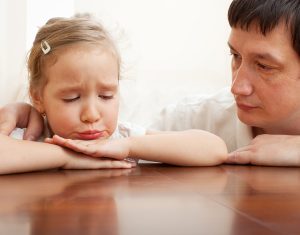Children experience anxiety, even though they don’t need to worry about earning a living, paying bills, dealing with health issues, etc.
three categories of stressful events that affect children:
* Environmental or developmental events, such as toilet training, beginning school, learning and becoming more responsible for oneself.
* Disturbing events include illness, accidents or death of a relative or events such as the birth of a sibling, moving to a new house, a new school or a first camp experience.
* Major stressful events involve hospitalization for a chronic illness or surgery, a disabling accident, separation and divorce, family violence or the death of a parent or sibling.
Although many consider stress as a negative, it can help a child develop coping mechanisms. Children’s reactions vary, depending on the reasons for the stress – the child’s personality and a variety of social, psychological cultural and developmental factors. Temporary behavioral problems arise when a child can’t cope with a situation. For young children, temper tantrums, excessive clinging or fears. nightmares, bedwetting or a reluctance to attend school may indicate stress. How adults react to these symptoms influences whether the distress is temporary or becomes chronic. We fserve as the alter ego of our young ones. We can help them to understand an experience and separate reality from fantasy.
Here are some ways to help your young child cope:
* Be aware of how your child thinks, feels and reacts at different stages of growth and development. You’ll know what kinds of experiences can be traumatic and be better equipped to assist.
* Be honest and open but age appropriate in your responses when discussing a traumatic event to help your child build a sense of trust and strengthen your relationship.
* Develop your children’s coping skills by offering information in advance.
* If your young child is struggling, talk about the problem in small doses to make it more manageable. Provide facts and observe reactions.
* If considerable anxiety or behavioral changes persist, consider consulting a mental health professional.
Children are wonderfully resilient but caring, understanding parental support is a crucial asset for learning how to manage life.

